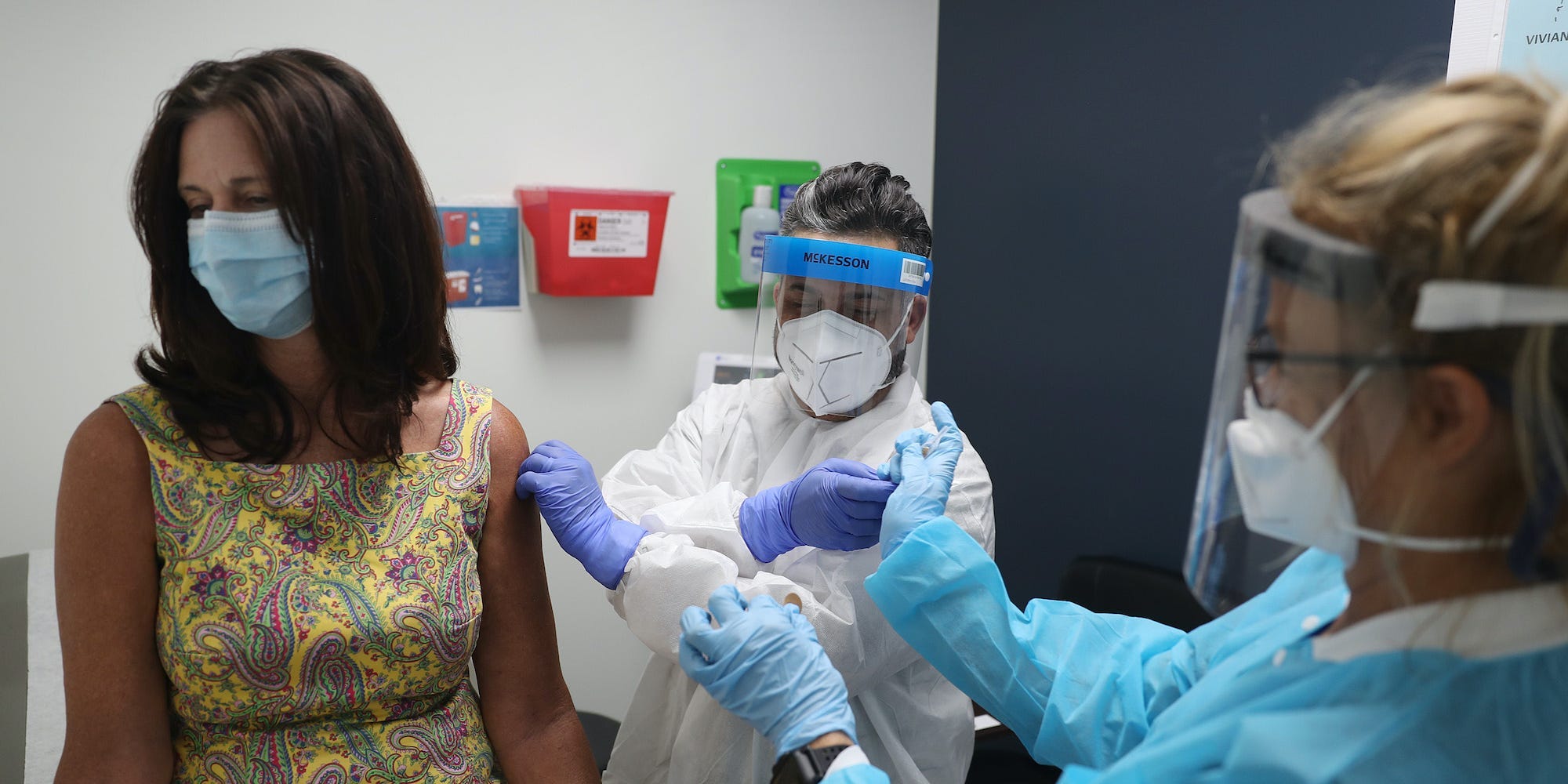
Joe Raedle/Getty Images
- The promise of mass vaccinations to quell the COVID-19 pandemic will help spur economic growth in the fourth quarter and beyond, according to Goldman Sachs.
- In a note on Tuesday, Goldman Sachs’ Chief Economist Jan Hatzius increased its fourth quarter GDP growth estimate to 5% from 3.2%.
- “We seem to be finding that the impact of a given virus outbreak on economic activity is not only smaller in the US than in Europe but also continues to diminish from one wave to the next,” Hatzius said.
- Visit Business Insider’s homepage for more stories.
Forecasters are extrapolating too much from past cycles as they best guess what economic growth will be in the coming quarters, according to Goldman Sach’s Chief Economist Jan Hatzius.
That’s one reason why Hatzius sees global economic growth surprising to the upside in the fourth quarter and in 2021, according to a Tuesday note.
Hatzius notes that while past recessions have usually resulted from asset prices bursting and financial shocks that took time to unwind and recover, the 2020 economic recession resulted from a health crisis, which, with the help of safe and effective vaccinations, can be quickly reversible.
Many sectors like travel and entertainment will rebound sharply once enough people are vaccinated, and other sectors like manufacturing have learned to adapt in a virus-ridden environment, the note said.
"This is likely to trigger renewed upgrades in consensus growth forecasts," Hatzius explained.
And despite a recent surge in US virus cases, Hatzius no longer believes US GDP declined sequentially in November, driving Goldman to upgrade its fourth quarter GDP growth estimate to 5% from 3.2%.
Additionally, Hatzius has found that the impact of the virus on economic activity is "not only smaller in the US than in Europe but also continues to diminish from one wave to the next, because both governments and private individuals gradually learn to restrict only those activities that post the highest risk of infection relative to their economic value," the note said.
Hatzius also pulled forward his expectations for how soon "the cavalry will arrive in the form of safe and effective vaccinations," according to the note, adding that the broader population is likely to develop herd immunity by the end of the second quarter next year.
"This change in our assumptions has resulted in a net 1pp upgrade of our H1 GDP growth forecast in the US, although we have offset some of the near-term upgrades via slower growth in H2," Hatzius said.
From a stimulus and monetary policy perspective, Hatzius expects some form of stimulus to eventually be passed by Congress between now and President-elect Joe Biden's inauguration, and doesn't see the Fed raising interest rates until 2025.

